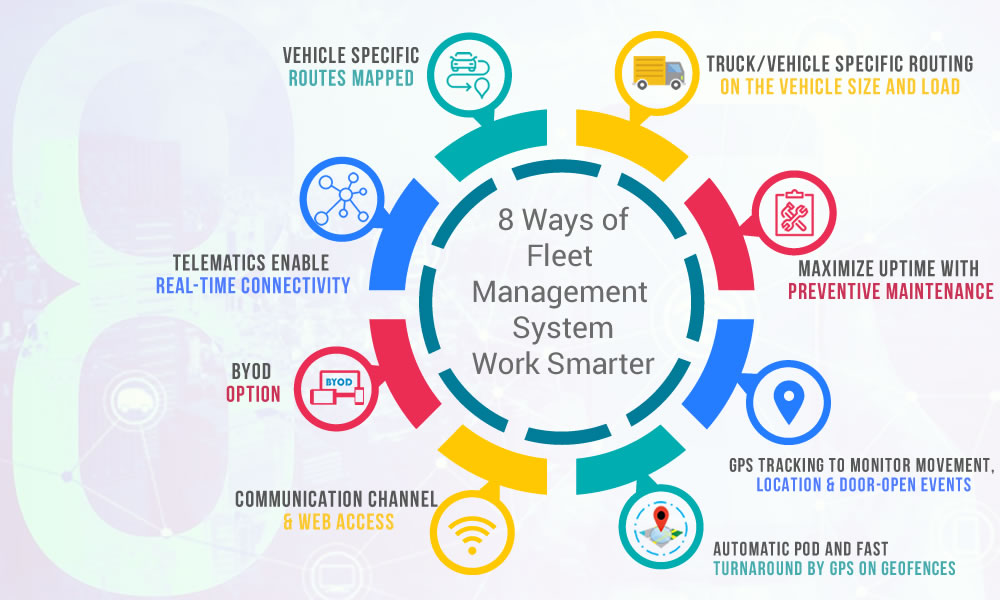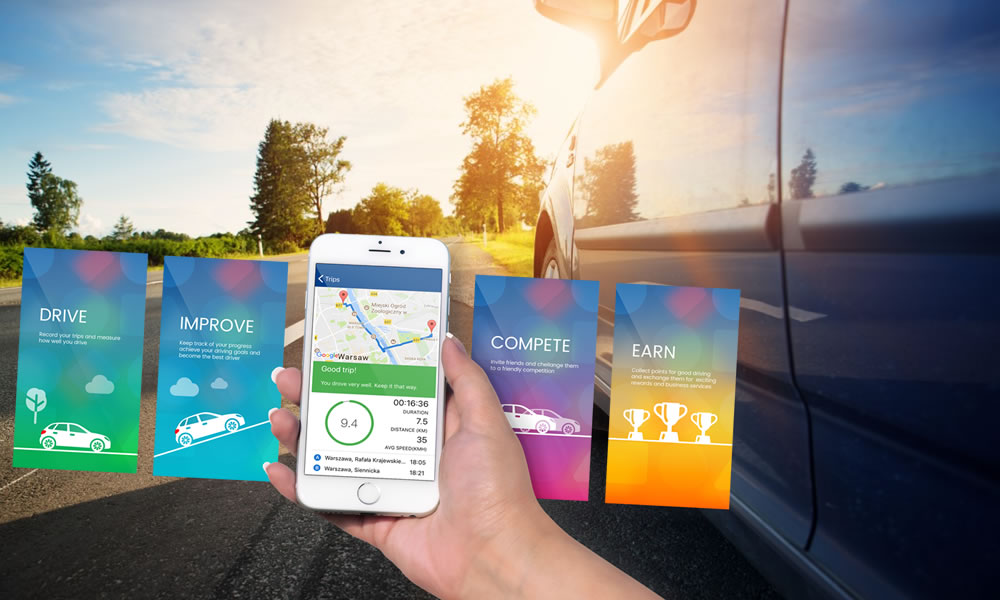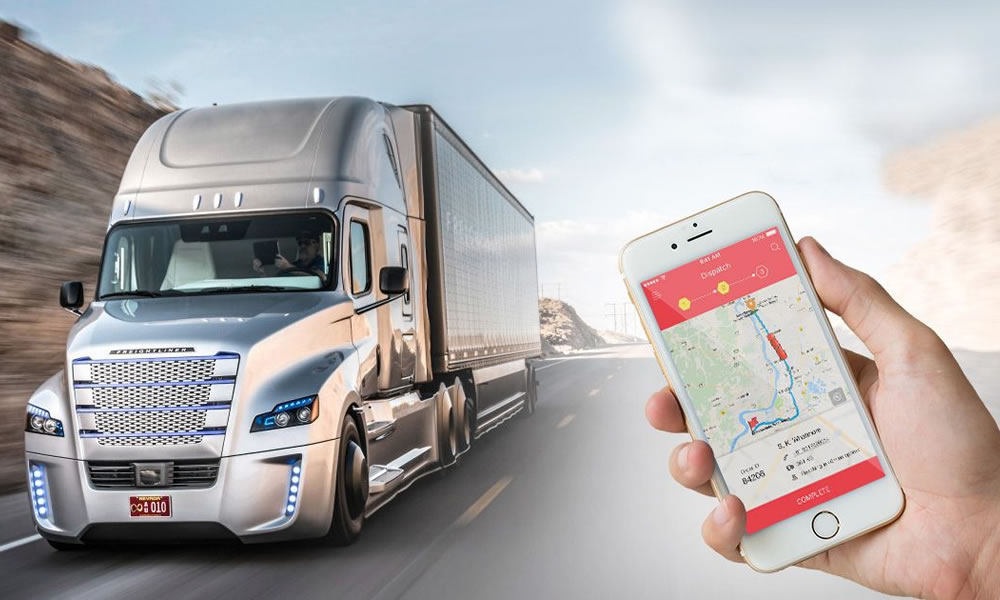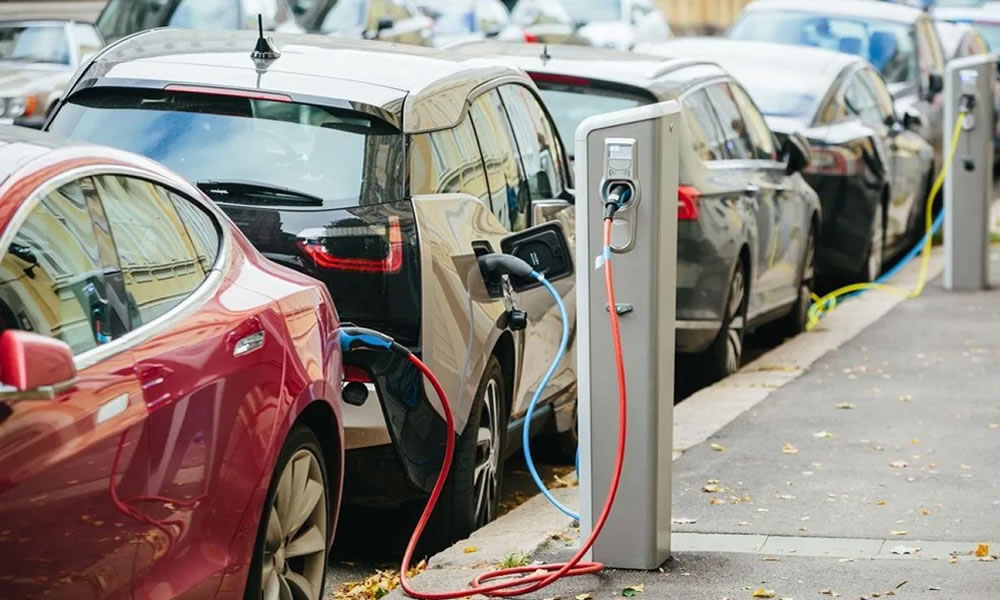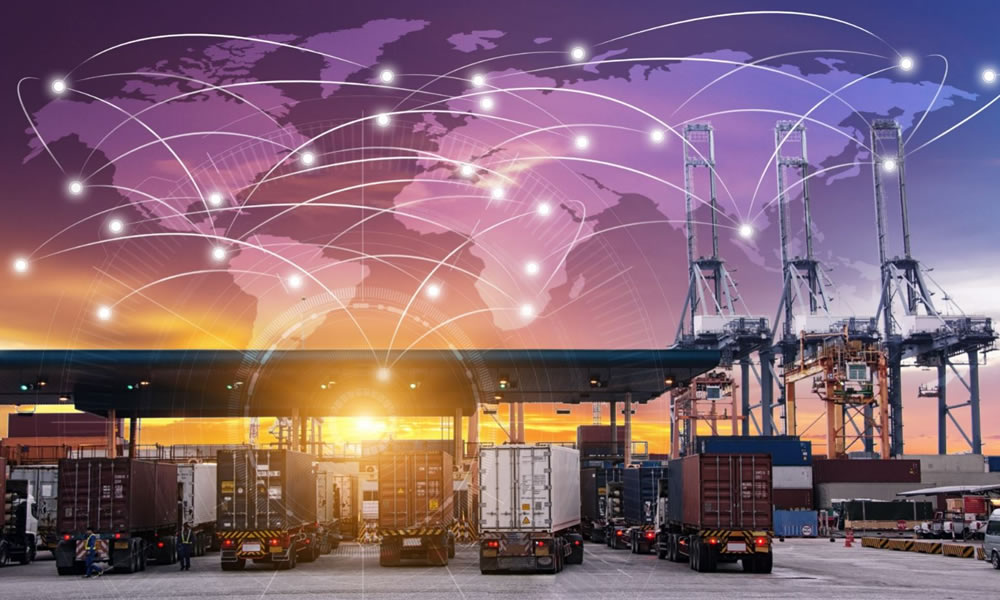There are smart ways to make your fleet management more effective to meet the unique requirements of your fleet of Vehicles or truck fleets. They are now easier to manage thanks to advancement in technology and IT, greatly improving a number of areas to benefit fleet owners or operators. Find here the 8 ways fleet management software can help make your fleet business more profitable and productive.
Telematics enable real-time connectivity
Fitting the vehicle or truck with the GPS tracking hardware and activating the device and software is all what you need to do to get instant fleet management. The FMS software will take care of all the requirements of the fleet managers and operators via telematics.
Vehicle specific routes mapped
The software provides navigational module for the drivers to safely move them from destination so the next and so on. GPS vehicle tracking offers number of significant advantages to keep drivers efficient safe and stress-free. A capable vehicle navigation and routing module is one of the most effective safety measures for drivers.
Truck/Vehicle specific routing is based on the vehicle size and load
Realistic maps help prepare drivers to make their journey efficiently and economically. Updates and notifications help drivers respond to route changes or detours. The rout is charted based on the size of the vehicle and the type of load it is carrying. Help drivers by providing more info such as weight limits, low bridge clearance, entry and exit points, rest stops or parking areas, etc. to get their way to each destination up to the last mile.
Maximize uptime with preventive maintenance
Maintenance managers are provided with a wealth of information and diagnostic data too on the health of vehicles. Compared with the OEM data provided by vehicle manufacturers maintenance managers currently get far more accurate evaluation of how the vehicles are performing as well as enable them to plan upcoming maintenance and their schedules. Service centres also get advanced notice of the schedules to be prepared. This data also helps the company plan vehicle life cycle and help develop best practice guidelines.
GPS tracking to monitor movement, location & door-open events
Robust hardware installed in vehicles or trucks monitor in real-time 24 x 7 the movements and location. It can also monitor the ‘door opening and closing’ events for reasons of safety and security. Geofencing can be set up by the software to monitor vehicle movements and also to automatically notify managers, such as when a vehicle enters or leaves a location or site.
Automatic POD and fast turnaround by GPS on Geofences
Using GPS enabled tracking the FMS lets you detect the location of a vehicle, or driver, or mobile asset, when entering or exiting the’ geofenced’ area which has added value to the system. it can be used to confirm automatically the Proof of Delivery (POD) and electronically tagged as a completed task. It can also trigger other functions like billing, despatch scheduling and others and cuts down paperwork completely.
Communication Channel & Web Access
The software help you set up interactive communication channel and data streams with fleet managers, drivers, backend staff, facilitating alerts & notifications, messages, feedback forms, complaints registry, monitoring parameters, etc. The FMS software is web hosted and mobile app integrated for easy data transfer in real-time and always accessible via a compatible communication channel.
BYOD Option
A BYOD (Bring Your Own Device) option can help reduce costs of managing fleets, as drivers can use their own device, a smartphone or tablet, with an app on either iOS or Android platform to be connected with the Headquarters. Integration with GPS tracking and mobile app installation, the system can facilitate navigation, cover compliance and driver behaviour and help in work order management, which all improves the work experience.
Trinetra’s Fleet Management Software uses a telematics to constantly monitor parameters and track vehicles or mobile assets across territories. It works in real time on a web-based platform built for easy and remote access by all stakeholders. With a customised mobile app, to helps run and streamline fleet operations economically ensuring a better ROI.
Simply request for a Demo and our team will return as to you as soon as possible.


